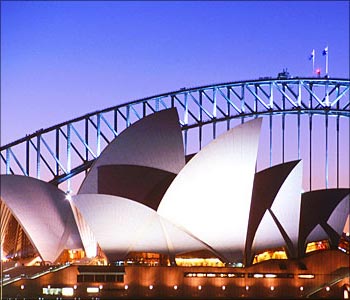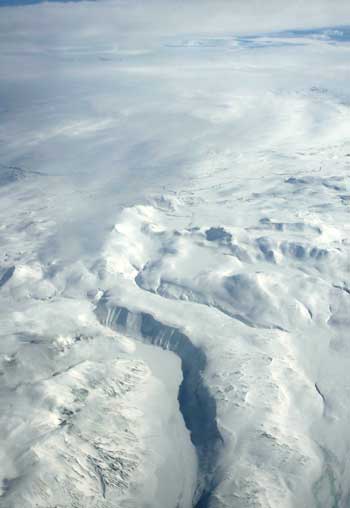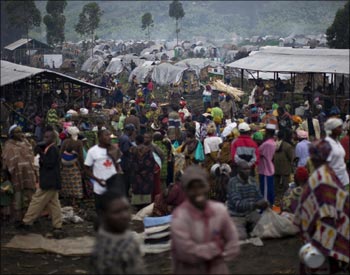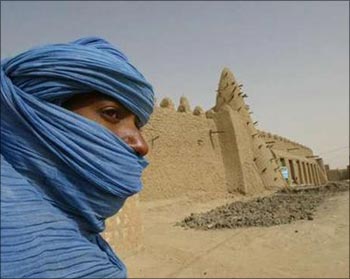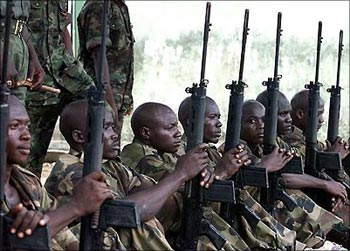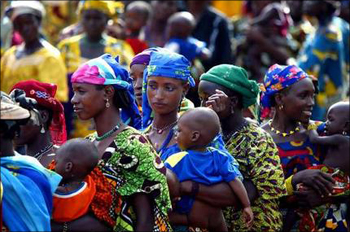 | « Back to article | Print this article |
World's best and worst countries to live in
India may be one of the fastest growing economies in the world, but the quality of life in the country has worsened, says the Human Development Index released by the United Nations Development Programme on Monday.
Among the 182 countries that were studied, India ranked a poor 134th.
India's rank has constantly slipped over the last few years, from 126 in 2007, to 128 in 2008 to 134 now. Yet, "overall, however, India has made steady progress on the human development index. Its value has gone up from 0.556 in 2000 to 0.612 in 2007," says Patrice Coeur-Bizot, resident representative of UNDP in India.
In comparison, neighbouring China ranked 92nd in the list of 182 nations, while Sri Lanka and Bhutan ranked higher than India at 102nd and 132nd spots.
Pakistan was ranked 141st, Nepal 144th and Bangladesh 146th.
So which are the best and worst countries to live in? Read on to find out. . .
World's best and worst countries to live in
1. Norway
Norway is the best place in the world to live in, says the UNDP's Human Development Index.
The UNDP Human Development Index, which is being published annually since 1990, goes beyond a nation's gross domestic product (GDP) to measure the general well being of people under a host of parameters, such as poverty levels, literacy and gender-related issues.
Each year since 1990 the Human Development Report has published the human development index (HDI) which looks beyond GDP to a broader definition of well-being. The HDI provides a composite measure of three dimensions of human development: living a long and healthy life (measured by life expectancy), being educated (measured by adult literacy and gross enrolment in education) and having a decent standard of living (measured by purchasing power parity, PPP, income).
The index is not in any sense a comprehensive measure of human development. It does not, for example, include important indicators such as gender or income inequality nor more difficult to measure concepts like respect for human rights and political freedoms. What it does provide is a broadened prism for viewing human progress and the complex relationship between income and well-being.
Of the components of the HDI, only income and gross enrolment are somewhat responsive to short term policy changes. For that reason, it is important to examine changes in the human development index over time.
World's best and worst countries to live in
2. Australia
Australia is the second best place to live in in the world.
World's best and worst countries to live in
3. Iceland
Iceland follows as the third best country to live in.
World's best and worst countries to live in
4. Canada
Canada ranks fourth in UNDP's Human Development Index.
World's best and worst countries to live in
5. Ireland
Ireland is the fifth best place to live in.
World's best and worst countries to live in
6. The Netherlands
The Netherlands is ranked 6th among the best countries to live in.
World's best and worst countries to live in
Sweden is the seventh best place to settle down in.
World's best and worst countries to live in
8. France
The quality of life in France is the 8th best in the world.
World's best and worst countries to live in
9. Switzerland
Switzerland, with a high HDI score, ranks 9th among the best countries to live in.
World's best and worst countries to live in
10. Japan
Japan is the 10th best nation to live in.
World's best and worst countries to live in
13. The United States
The United States is the 13th best country when it comes to the quality of life that its citizens enjoy.
World's best and worst countries to live in
Guinea-Bissau is ranked 173rd in a list of 182 nations. The quality of life here is the 10th worst in the world.
Burundi, at 174, is worse than Guinea-Bissau when it comes to quality of life.
World's best and worst countries to live in
Chad ranks 175th and the Democratic Republic of the Congo is at 176 among 182 nations.
World's best and worst countries to live in
Burkina Faso ranks 177th and the quality of life here is appalling, like in Mali which is ranked even lower at 178.
World's best and worst countries to live in
The Central African Republic is at 179th position, followed by war-torn Sierra Leone which is at 180.
World's best and worst countries to live in
Afghanistan (181) is the second-worst country to live in, but the quality of life is the worst in the world in Niger which ranks 182nd.


